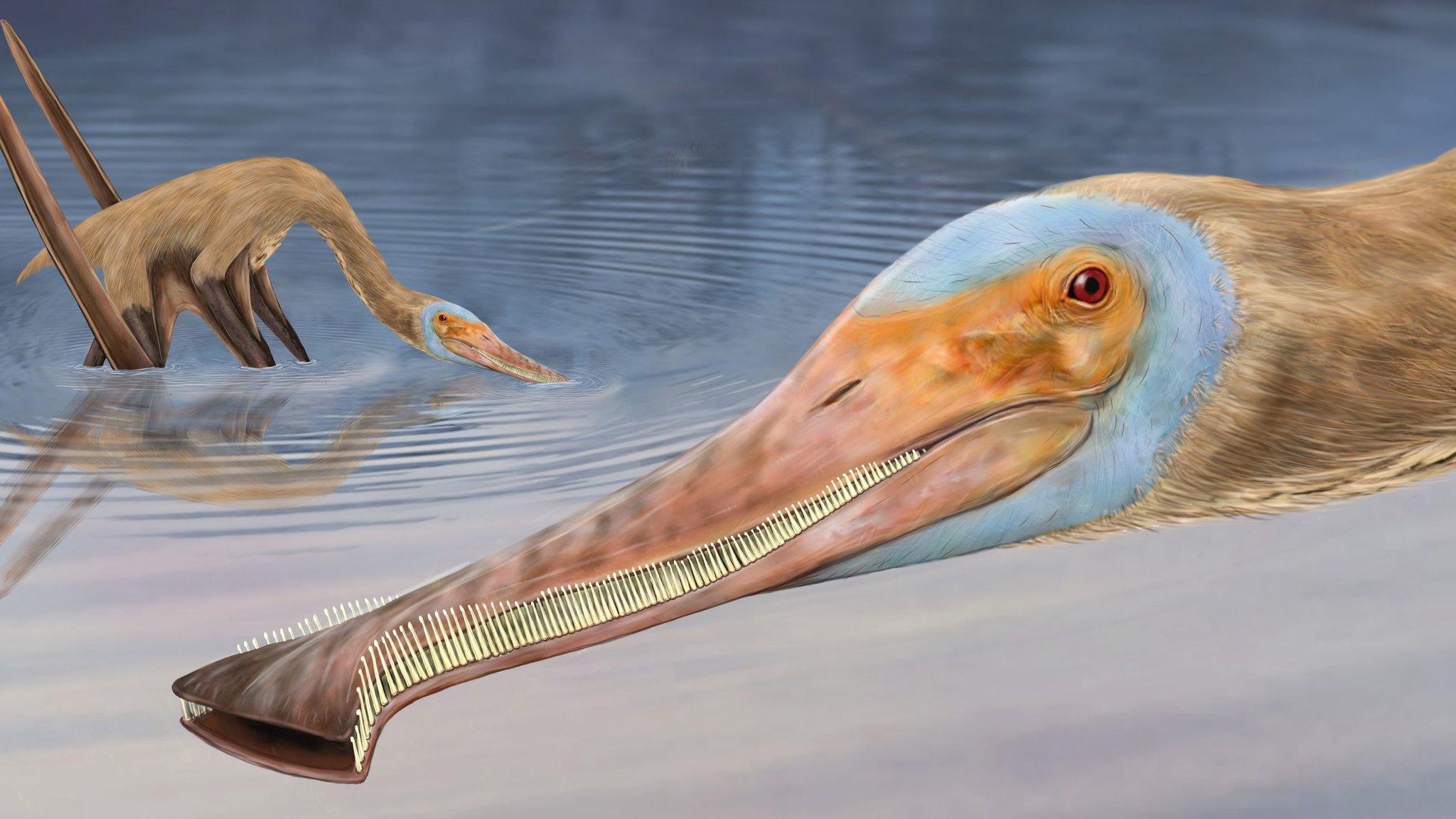"Strange" bird fossil named after Sir David Attenborough
- Published
- comments
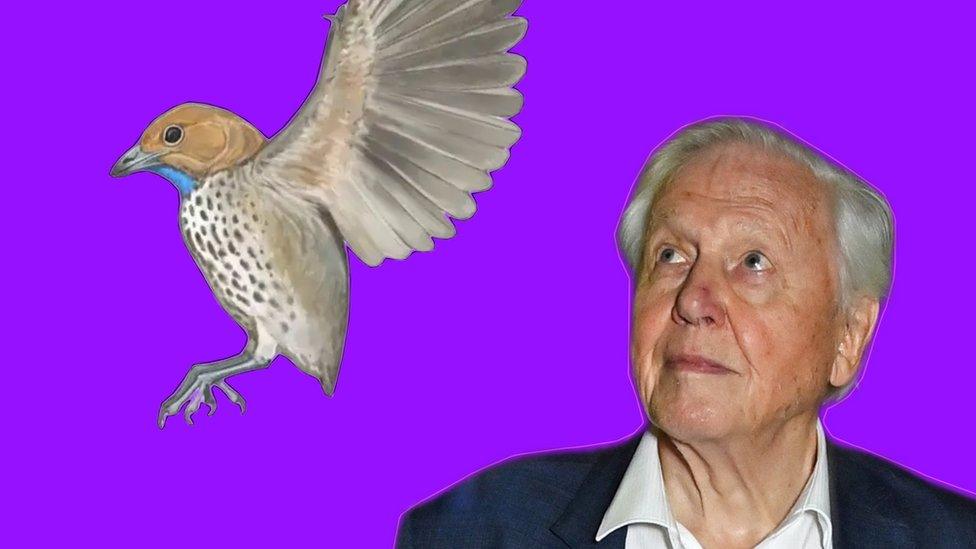
A fossil of a bird named after Sir David Attenborough is the first of its kind that didn't have teeth.
Called Imparavis attenboroughi, which means "Attenborough's strange bird", the fossil has changed scientific opinion on how the creatures evolved.
"It is a great honour to have one's name attached to a fossil particularly one as spectacular and important as this. It seems the history of birds is more complex than we knew," said Sir David Attenborough.
The bird belonged to a group called enantiornithines that lived in what is now north eastern China as long as 120 million years ago.
The birds have been described as "very weird" because most enantiornithines had teeth and had tiny, clawed fingers at the end of their wings.
Alex Clark, a Ph.D. student at the University of Chicago who worked on the study, says if you could go back in time "you might have seen something that looked like a robin or a cardinal, but then it would open its mouth, and it would be filled with teeth, and it would raise its wing, and you would realize that it had little fingers."
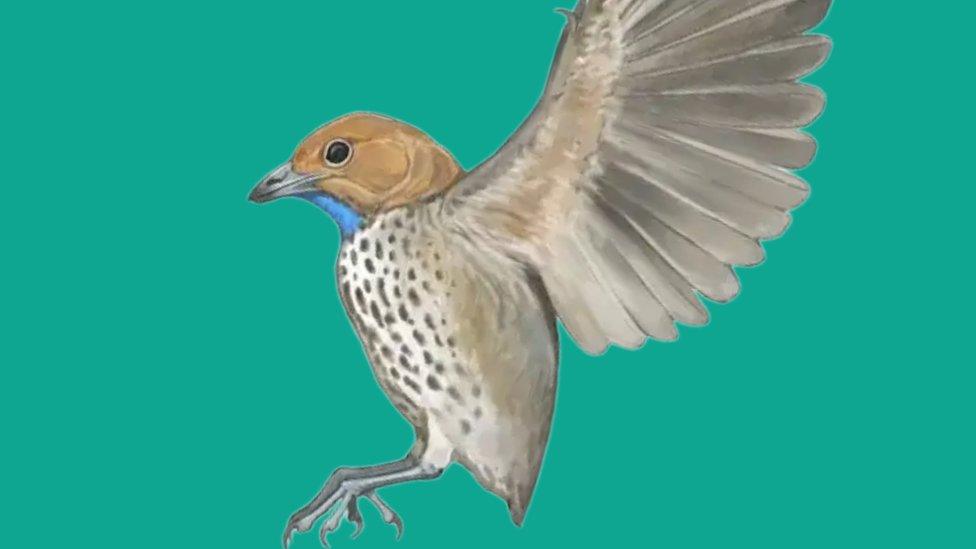
But the new fossil found by an amateur collector near the village of Toudaoyingzi in northeastern China proves that "toothlessness evolved much earlier in this group than we thought," says Clark.
"Scientists previously thought that the first record of toothlessness in this group was about 72 million years ago - This little guy, Imparavis, pushes that back by about 48 to 50 million years."
The name enantiornithines means "opposite bird", named because of a feature in their shoulder joints that is "opposite" from what's seen in modern birds today.
Modern birds evolved from dinosaurs, but enantiornithines, which lived on Earth at the same time as the ancient reptiles, were wiped out when a meteor smashed into the planet 66 million years ago.
Scientists are still unsure why the enantiornithines went extinct and how a group of dinosaurs known as Coelurosaurs, which evolved into modern birds, were able to survive.
- Published6 March 2024
- Published6 December 2022
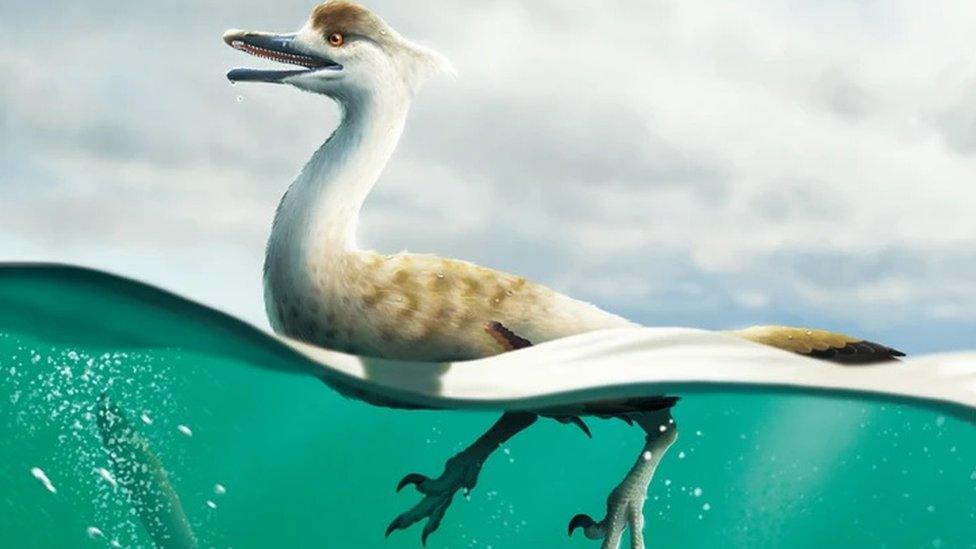
- Published10 April 2015
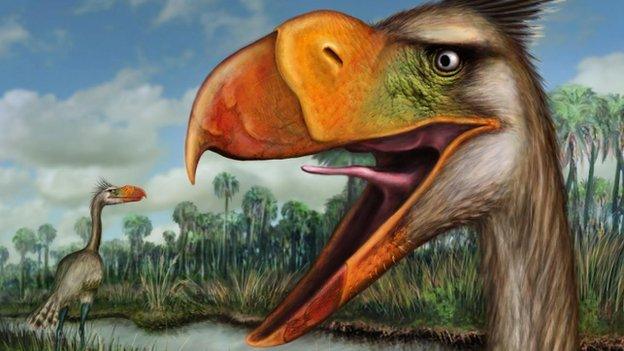
- Published28 February 2023
